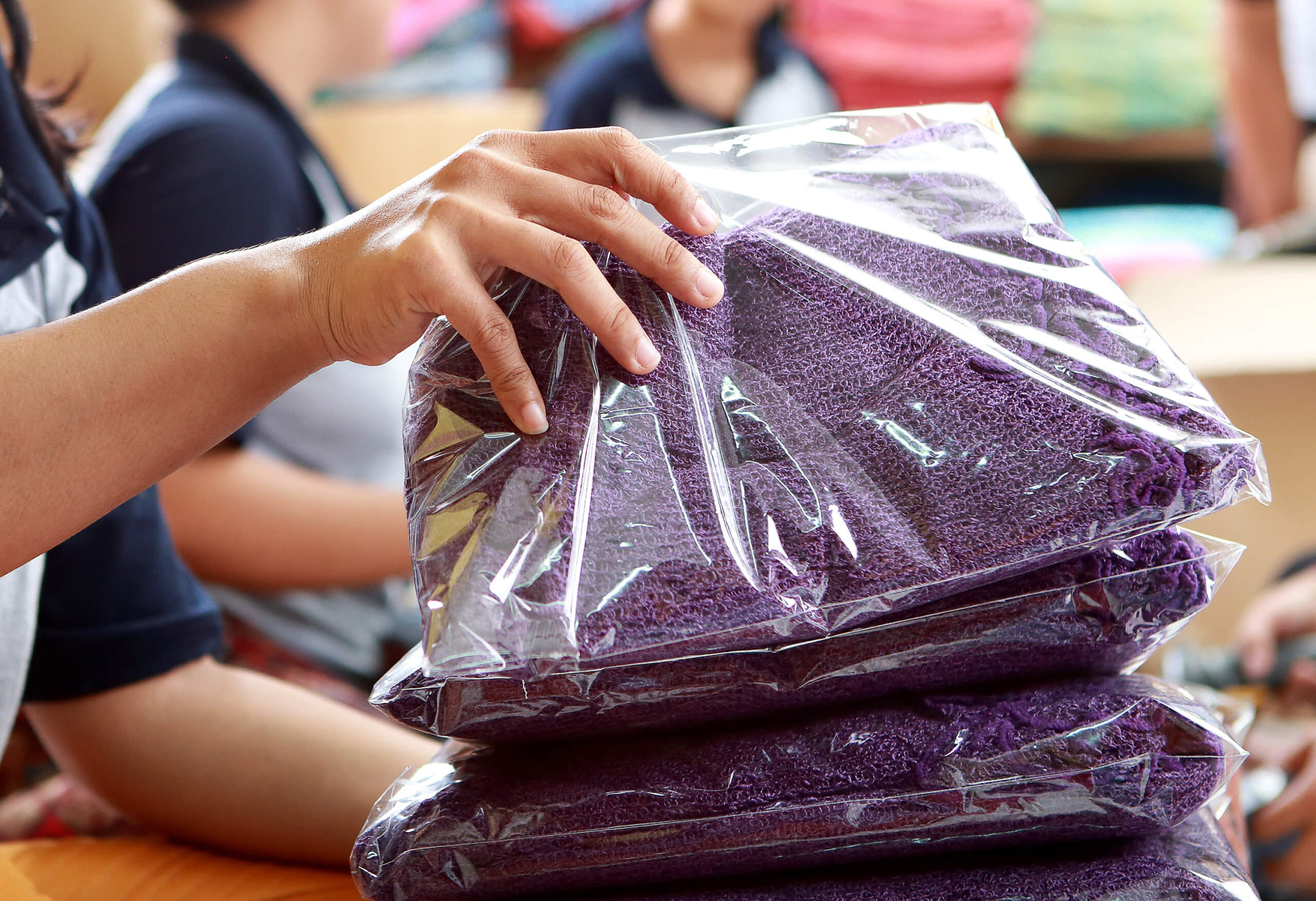
Plastic polybags, which are used by the garment industry to package individual clothing items, are vital to keep products clean and reduce the likelihood of damage. Clear plastic polybags enable easy organization, which increases efficiency during packing and transport, and enhanced affordability reduces costs for retailers and consumers. As the garment industry works to meet sustainability goals, plastics contribute the lowest environmental impact compared to current alternatives.
In the clothing industry, inefficient processing is the number one cause of shipment delays and leads to order cancellations and loss of repeat business. Meanwhile, inaccurate inventory is one of the top five causes of production delays, and lost labels create inaccurate inventory records, hampering distribution efficiency and creating stock-outs and oversales. However, by using plastic polybags, companies can avoid these challenges and boost efficiency during packing and shipping processes.
A ranking of polybags found that the ideal packaging is durable, lightweight, and, most importantly, clear so that distribution center workers and scanners can easily and quickly identify products without opening or disturbing packages. Pick labels, which are barcodes used to inventory and identify products, are also more likely to stick to plastic packaging than alternatives like wax or tissue papers. According to a study, pick labels fall off of 25% of products that are packed in polybags made from alternative materials, while none were documented falling off plastic. Higher stick rates to plastic ensure easy scanning during packing, shipping, and in-store inventorying.
In addition to being clear and stickier, plastic polybags make products more compact so robots in primarily automated shipping centers can more easily and securely move items from conveyor belts and into boxes. One study found that over 40% of products packaged in paper came loose during processing, slowing down supply chains due to equipment inspection and product repackaging. Comparatively, only 1% of products packaged in plastic polybags escaped. Efficiencies during sorting, packing, and distribution are vital to operations because malfunctions and delays can increase time and monetary costs not only for manufacturers, but for consumers and companies down the supply chain.
While plastic polybags help ensure that products are correctly scanned and packed, these vital packaging materials also reduce the possibility of items becoming damaged. Compared to alternatives, plastic polybags are more durable, meaning that fewer products are likely to be damaged during packing, sorting, and distribution.
Additionally, plastic polybags protect products from dirt, moisture, and damage, which can render a product unsellable. In fact, 99% of garments in plastic polybags arrive to consumers in perfect condition, which reduces waste and time and money lost compared to alternatives. Comparatively, over 30% of products packed using alternative materials were damaged “past the point of sale viability.” Damaged products must be reordered, creating additional material, labor, and shipping costs for the manufacturer. These challenges impact price setting and create resource waste that could all be avoided if plastic is more widely used to protect products.
According to life cycle assessments (LCAs), plastic packaging is the most environmentally friendly packaging material when compared to alternatives. Plastic polybags produce lower greenhouse gas emissions than paper alternatives, and are more likely to have effective end-markets in post-consumer stages. A recent white paper by environmental scientist Kenneth Green compiled research indicating that substituting other materials in place of plastic was oftentimes less environmentally sustainable than continued use of plastic. Plastic polybags are also recyclable through many local plastic recycling programs, and retailers like Asos and Calvin Klein allow consumers to mail back their plastic packaging, which the company then recycles or repurposes.
Consumer brands are working to better design packaging to more efficiently pack items, while also using polybags made from recycled plastic more often. Some companies are even partnering with recycling organizations where community initiatives have struggled to ensure that plastic polybags have sustainable end-lives.
In 2020, Fashion for Good partnered with retailers including Adidas and Calvin Klein for The Circular Polybag Pilot, a 5-month study on reducing plastic polybag waste and increasing recycling opportunities. The partnership developed a system to speed up plastic polybag’s circular lifecycle process, decreasing time from initial recycling to rebirth as a new polybag. Efforts like these are proactively creating a more circular economy for plastics. By keeping products compact and protected, while also ensuring efficiencies during packing and shipping, plastic polybags facilitate an effective and environmentally friendly garment industry. Plastic polybags are a critical part of the garment industry, and by using plastic more effectively at every step of the supply chain stakeholders can create a sustainable circular economy.